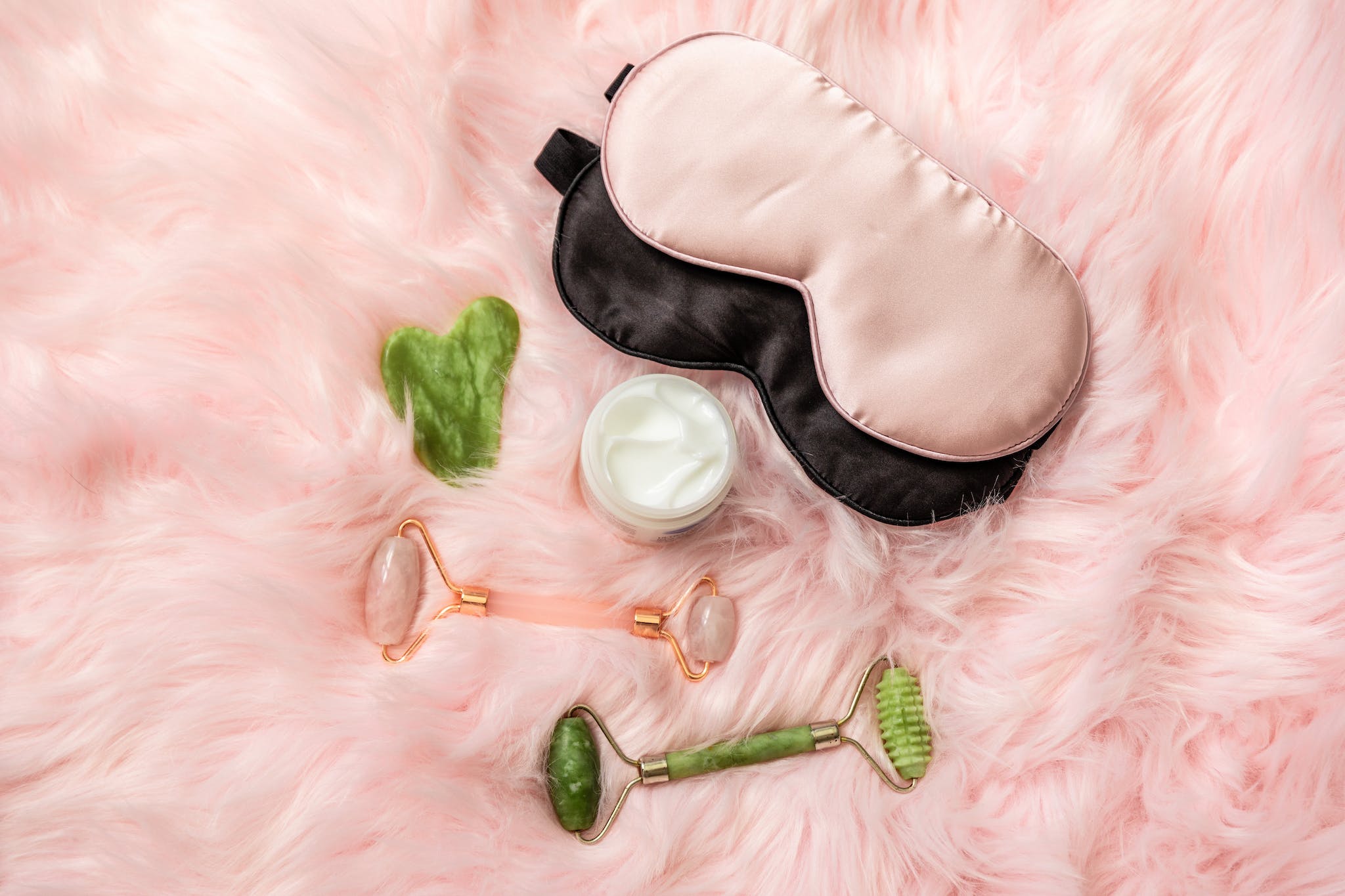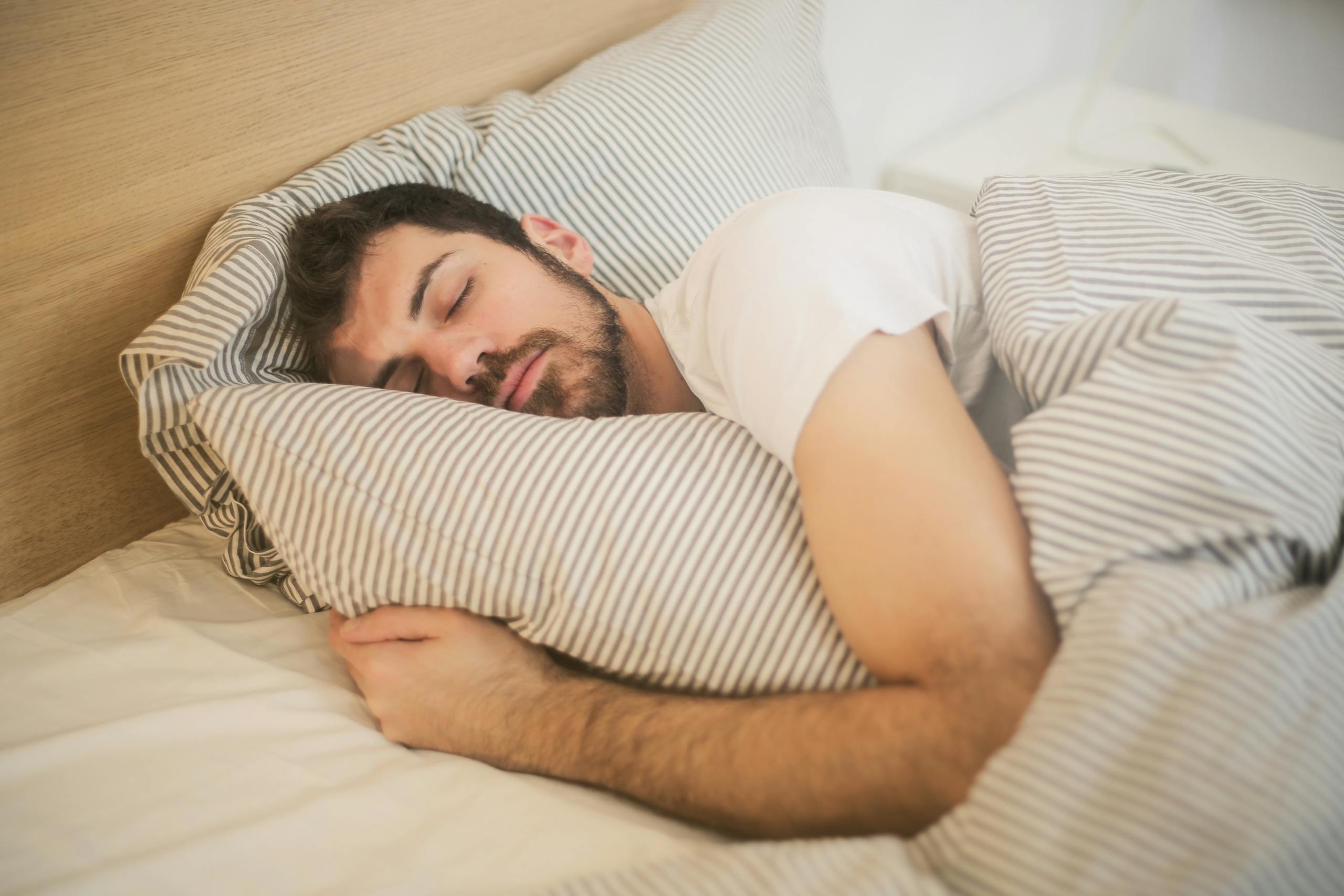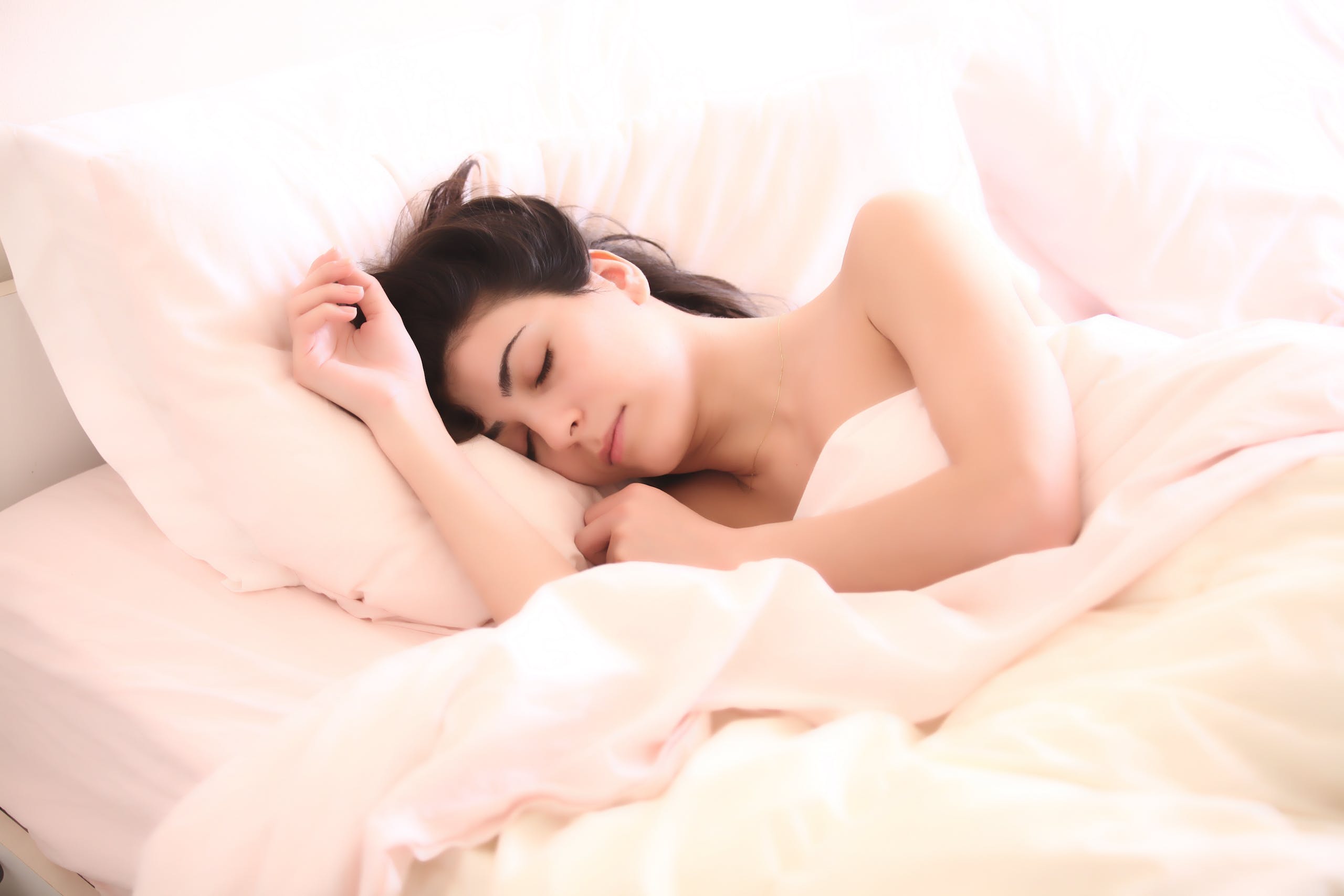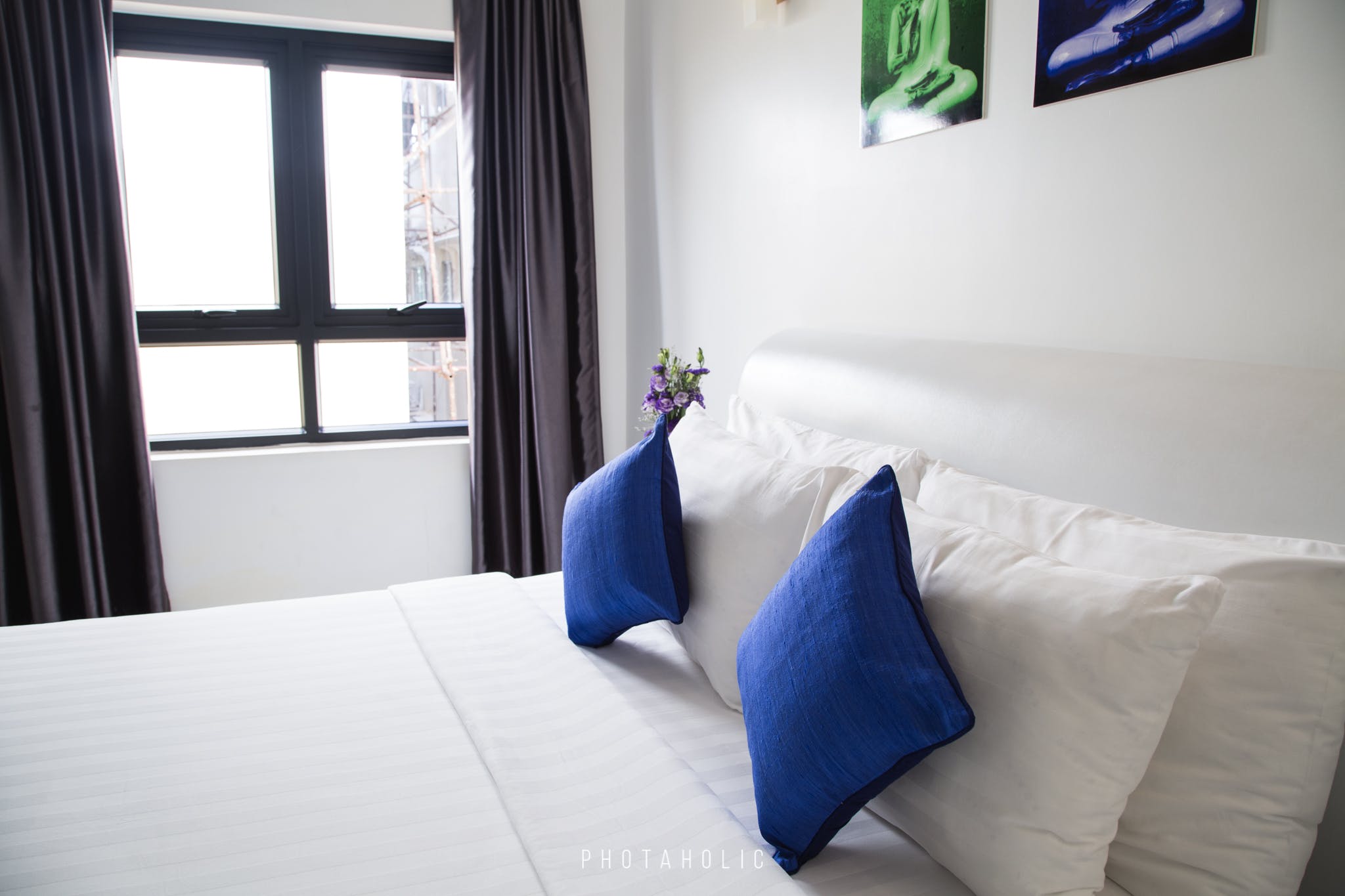Benefits of Sleep Mask For Eyes: Improves Sleep Quality
There are some affiliate links below, but they are all products I highly recommend. For more info, view my disclosure here.
Are you struggling to get a good night’s sleep? Do you find yourself tossing and turning all night long? If so, you may want to consider investing in a sleep mask.
Sleep masks have been around for years, but many people are still unaware of their benefits. In this article, we’ll explore the advantages of using a sleep mask and how it can improve the quality of your sleep.
For starters, sleep masks are an effective way to block out light. If you’re someone who is sensitive to light, even the smallest amount can disrupt your sleep. A sleep mask can help to create a dark environment, which can promote deeper, more restful sleep. Additionally, sleep masks can be especially helpful for those who work night shifts or live in areas with high levels of light pollution.
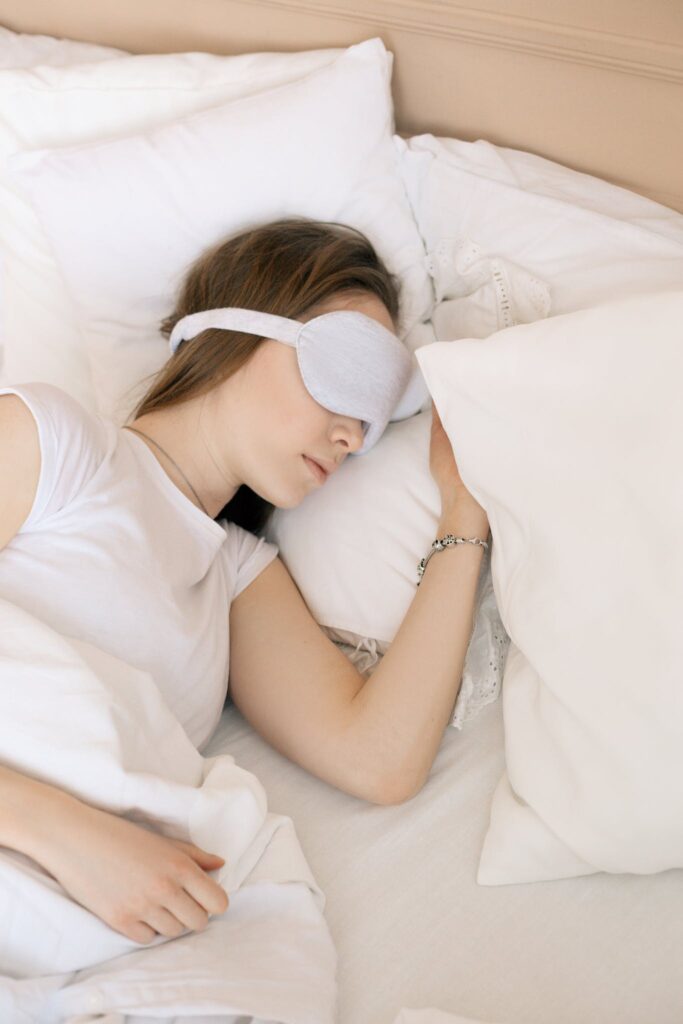
Another benefit of using a sleep mask is that it can help to regulate your body’s internal clock. Our bodies are naturally programmed to sleep when it’s dark and wake up when it’s light. By using a sleep mask to create darkness, you’re sending a signal to your body that it’s time to sleep. This can be especially helpful for those who struggle with insomnia or other sleep disorders.
Sleep masks can also be helpful for those who suffer from migraine headaches. Exposure to light during sleep can be a trigger for migraines in some individuals. By blocking out all light with a sleep mask, you may be able to reduce migraine frequency and severity. The relaxation and uninterrupted sleep provided by a sleep mask can also help ease headache pain.
For travelers and shift workers who struggle with jet lag, a sleep mask can help realign your circadian rhythms. Wearing a sleep mask mimics the darkness signal that tells your brain it’s time to sleep.
This can help you fall asleep more easily when dealing with jet lag from changing time zones or adjusting to abnormal work schedules.
The darkness provided by the mask helps regulate melatonin production so you can get better quality sleep despite circadian disruptions from travel or irregular work hours. Investing in a comfortable, lightweight sleep mask is wise for frequent travelers aiming to minimize the effects of jet lag.
Understanding the Science of Sleep Masks
If you’re looking to improve your sleep quality, investing in a sleep mask is a great place to start. Not only can it help you fall asleep faster, but it can also help you stay asleep longer. Here’s a closer look at the science behind sleep masks and how they can impact your sleep patterns.
Influence on Melatonin Production
Melatonin is a hormone that your body produces naturally to help regulate your sleep cycle. It’s often referred to as the “sleep hormone” because it helps you feel drowsy and ready for bed. One of the key benefits of using a sleep mask is that it can help boost your body’s production of melatonin.
When you’re exposed to light, your body naturally decreases its production of melatonin. This is why it’s important to sleep in complete darkness if you want to maximize your melatonin levels. A sleep mask can help block out any light that may be interfering with your body’s natural melatonin production, allowing you to fall asleep faster and stay asleep longer.
Impact on REM and Deep Sleep
During the course of a night’s sleep, your body cycles through different stages of sleep, including REM (Rapid Eye Movement) and deep sleep. Both of these stages are critical for helping you feel rested and refreshed in the morning. A sleep mask can help improve the quality of both REM and deep sleep.
REM sleep is important for cognitive function and memory consolidation. It’s also the stage of sleep where you’re most likely to dream. Deep sleep, on the other hand, is critical for physical restoration and healing. It’s during this stage of sleep that your body repairs and regenerates tissues, strengthens your immune system, and releases growth hormone.
By blocking out any light that may be disrupting your sleep, a sleep mask can help you achieve deeper, more restful sleep. This can lead to improved cognitive function, better physical health, and a more positive mood throughout the day.
Sleep masks can have a significant impact on your overall sleep quality. By promoting the production of melatonin and improving the quality of REM and deep sleep, they can help you feel more rested and refreshed in the morning. If you’re struggling with sleep issues, investing in a high-quality sleep mask may be just what you need to get back on track.
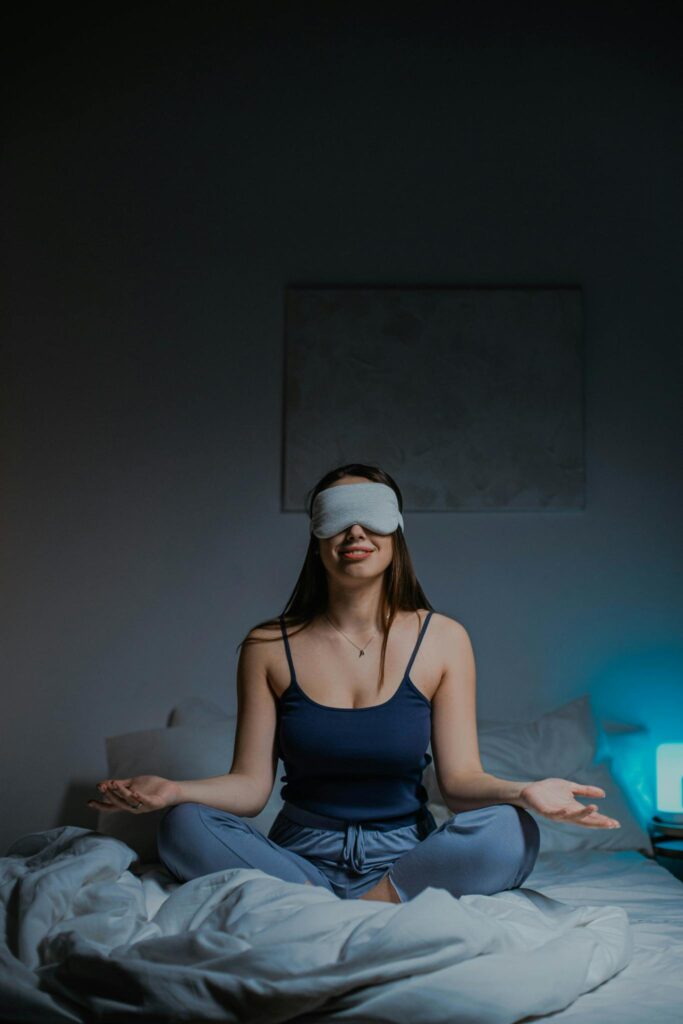
Practical Benefits of Using a Sleep Mask
If you are struggling to get a good night’s sleep, a sleep mask may be just the solution you need. Here are some practical benefits of using a sleep mask:
Enhanced Sleep in Various Environments
If you are a light sleeper or a side sleeper, you may have trouble sleeping in environments with ambient or artificial light. A sleep mask can help block out intrusive light and create a dark, restful sleep environment. This is especially useful for those who work night shifts or have to sleep during the day.
If you are staying in a hotel room with bright street lights or if you are traveling on a long-haul flight, a sleep mask can help you get the restful sleep you need.
Prevention of Sleep Disruptions
If you suffer from dry eyes or are sensitive to light, a sleep mask can help prevent sleep disruptions. The adjustable strap on a sleep mask ensures that it stays in place throughout the night, preventing it from slipping off and allowing light to enter.
If you are in an intensive care unit or hospital setting, a sleep mask can help block out the light from electronic devices and other sources, allowing you to get the restful sleep you need.
In addition, using a sleep mask along with earplugs can help block out noise and create a peaceful sleep environment.
Overall, a silk eye mask or a pure silk sleep mask can provide many benefits for those who struggle with sleep disruptions or light pollution. Incorporating a sleep mask into your bedtime routine can help enhance your sleep and improve your overall well-being.
Health and Wellness Advantages
Sleep masks are not just a fashion accessory; they have a range of health and wellness benefits that make them an essential item for anyone looking to improve their quality of sleep. In this section, we’ll explore some of the cognitive and physical advantages of using a sleep mask.
Cognitive and Mental Health Improvements
One of the primary benefits of using a sleep mask is the improvement it can bring to your cognitive function. By blocking out all light, your brain can better relax, leading to an increase in reaction time and overall cognitive performance. Additionally, sleep masks can help you get a better night’s sleep, which can lead to improved mental health. Studies have shown that individuals who get enough sleep are less likely to experience depression, anxiety, and other mental health issues.
Physical Health and Beauty Gains
Sleep masks can also provide a range of physical health and beauty benefits. By ensuring you get a good night’s rest, you’ll wake up feeling refreshed and energized. This can help improve your body’s circadian rhythm, leading to a more consistent sleep schedule. Additionally, sleep masks can help regulate your body temperature, making it easier to fall asleep and stay asleep throughout the night.
For those concerned about their appearance, sleep masks can help reduce dark circles and improve the overall quality of your skin. By blocking out bright light, you’ll be less likely to experience eye strain or other issues related to the delicate skin around your eyes.
It’s important to note that while sleep masks can provide a range of benefits, it’s always best to seek medical advice before using one. If you’re experiencing sleep deprivation or other sleep-related issues, it’s important to address the root cause rather than relying solely on a sleep mask. However, for those looking to improve their overall sleep quality, a sleep mask can be an excellent addition to your bedtime routine.
